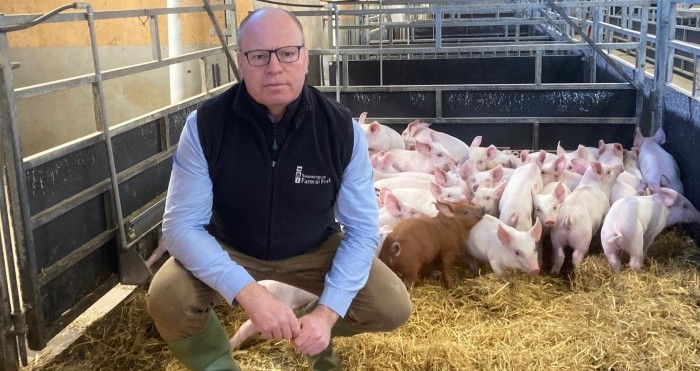NPA chairman Rob Mutimer has warned that changes to Agricultural Property Relief (APR) could have a devastating impact on the farming industry and has urged pig producers to write to their MPs to set out exactly how their businesses will be affected.
Mr Mutimer, a Norfolk farmer, described the APR changes, announced in the autumn budget by Chancellor Rachel Reeves earlier this month, as ‘one of the most nonsensical policies I have ever heard’.
Farmers and their representative bodies have expressed fear that the changes will result in many family farms across the country being lumbered with huge inheritance tax bills that will force them to restructure, break up their farms or, in some cases, even sell the business.
Despite intense industry lobbying, including numerous first-hand tales from farmers setting out the direct impact on their businesses, the Treasury is sticking by its line that this will only affect a few of the richer farmers and landowners, amid a bitter row over how many farms will be affected. A recent report by the BBC suggested the Treasury had no intention of making any changes to the policy, despite concerns within Defra.
It has been reported that some rural MPs are coming under intense pressure from constituents to oppose the policy and Rob said it was absolutely vital that farmers set out their individual cases, so MPs can see for themselves how many farmers are affected and the disruption it will cause.
He said: “I urge all members who are affected by this to write to their MPs to show that it is family farms – working people who provide the nation’s food and often struggle to make a profit – who are going to suffer from this, not rich landowners who can afford it or find ways around it.
“It is absolutely ludicrous to say most family farms won’t be brought into this. I have spoken to many farmers about this, and it is clear that even people with average-sized farms will face inheritance tax bills of hundreds of thousands of pounds.
“Many businesses simply will not be able cope with that and will have to sell off parts of the farm to pay for it, making them and the wider industry less competitive, when we should be investing in our businesses to make them better, in turn making that land available to those investors and entrepreneurs that this change should actually be targeting.
“Yes, there are things farmers can do, such as gifting farms to offspring and starting the succession process earlier, but, in many cases that is not straightforward. Any family farm that hasn’t got their succession sorted out could be in an absolute mess, unless the government looks again at this.”
He believes that even if the government doesn’t scrap the policy altogether, there is a lot it could do to mitigate the worst of the damage for farmers, such as pushing the start back and increasing the thresholds.
“Farmers feel a sense of betrayal after all the assurances we received from the prime minister and Defra ministers before the election on APR and their wider commitment to supporting British farming. That all disappeared with this announcement, and I fear the relationship will be permanently damaged unless there is an urgent rethink.”
NPA members can access a template letter on the NPA website.
Mr Mutimer will be attending the NFU mass lobbying event on Tuesday, November 19. This has been restricted to 1,800 NFU members, but farmers are also being urged to register for a parallel event that it is expected to be attended by thousands of farmers in central London.
The changes
From April 2026, APR and Business Property Relief (BPR) will be capped at £1m in total per owner. Qualifying assets beyond this level will receive 50% relief from inheritance tax, resulting in an effective tax rate of 20%, after using the nil rate band of £325,000 and residence nil rate band of £175,000.
If a farmer is married, their spouse would be able to benefit from their relief when passing their business assets to the successor, but even farms owned by two people will be severely affected, according to the Country Land and Business Association.
According to the CLA’s analysis of model arable farms, a typical 200-acre farm owned by an individual with an expected annual profit of £27,300 would face an IHT liability of £435,000.




